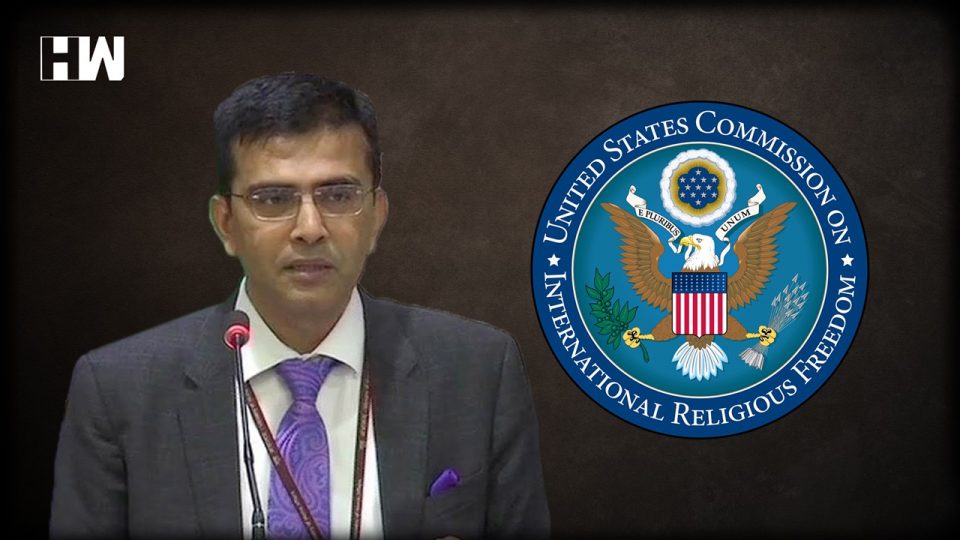“Every country, including the US, has the right to list and validate its citizenry and to exercise this entitlement through various policies,” said the MEA
New Delhi: On Tuesday hours after the US Commission on International Religious Freedom (USCIRF) suggested the Donald Trump-led government consider imposition against Home Minister Amit Shah over the CAB and stated as “neither accurate nor warranted”.
“The USCIRF stated on the Citizenship Amendment Bill is neither accurate nor warranted. The bill provides expedited consideration for Indian citizenship to mistreated religious minorities already in India from certain contiguous nations. It seeks to address its recent difficulties and meet their basic human rights. Such an initiative should be welcomed, not criticized by those who are actually committed to religious freedom,” MEA spokesperson Raveesh Kumar said explaining the decision of the government.
If law implemented, the Citizenship Amendment Bill would give non-Muslim refugees from religious mistreatment in Pakistan, Afghanistan, and Bangladesh a path to Indian citizenship.
The bill is criticized and many have said it is unconstitutional. The United States Commission on International Religious Freedom (USCIRF) described the legislation as “a dangerous turn in the wrong direction”, and said it was “deeply troubled” by its passage in the Lok Sabha.
“If the CAB passes in both Houses of Parliament, the United States government should consider sanctions against the Home Minister Amit Shah and other principal leadership,” the USCIRF said.
Responding to the threat of sanctions against Amit Shah, the MEA spokesperson Raveesh Kumar said, “The position hinged by USCIRF is not surprising given its past record. However, it is unfortunate that the body has chosen to be guided only by its disadvantages and biases on a matter on which it clearly has little understanding and no _locus standi_.”
“Neither the Citizenship Amendment Bill nor the National Register of Citizens process seeks to clean out citizenship from any Indian citizen of any faith,” said the MEA.
“Every country, including the US, has the right to list and validate its citizenry and to exercise this entitlement through various policies,” said the MEA.
Earlier, the CAB has got criticism from various sections of the US government. The US House Foreign Affairs Committee in a tweet raised concerns regarding the basic premise of the bill.
“Religious principles are central to the foundations of both India and the United States and is one of our core shared values. Any religious test for citizenship undermines this most basic democratic belief.
The USCIRF, similarly, said that the bill runs opposite to the secular fabric of India.
The statement said “The CAB set down a pathway to citizenship for immigrants that specifically excludes Muslims community, setting a legal criterion for citizenship based on faith. The CAB is a dangerous turn in the wrong direction; it runs counter to India’s rich history of secular principles and the Indian Constitution, which guarantees equality before the law regardless of religion,”.
As an independent media platform, we do not take advertisements from governments and corporate houses. It is you, our readers, who have supported us on our journey to do honest and unbiased journalism. Please contribute, so that we can continue to do the same in future.

